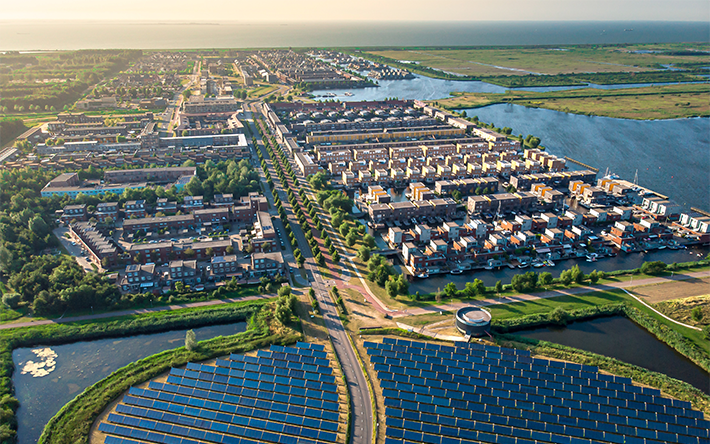
Frühzeitige Erkennung und Umgang mit den Auswirkungen des Wandels
Die frühzeitige Erkennung und der Umgang mit den Auswirkungen des Wandels sind einer der sechs wichtigsten Tätigkeitsbereiche im Arbeitsprogramm von Eurofound für den Zeitraum 2021–2024. Eurofound wird Daten und Fakten zu strukturellen Entwicklungen vorlegen, die die Wirtschaft und die Arbeitsmärkte in der EU beeinflussen und die weitgehend auf die Digitalisierung und die Umstellung auf eine CO2-freie Wirtschaft , aber auch auf die COVID-19-Krise zurückzuführen sind. Mit den Forschungsarbeiten sollen politische Entscheidungsträger bei der frühzeitigen Erkennung und der Vorbereitung europäischer Arbeitsmärkte und Arbeitsplätze auf diese Veränderungen unterstützt werden.
Eurofound wird ab dem Jahr 2021 wichtige Erkenntnisse zu den Auswirkungen dieser Megatrends auf die Lebens- und Arbeitsbedingungen in der EU bereitstellen. Im Bereich Digitalisierung wird sich die Forschung schwerpunktmäßig mit den Auswirkungen auf die Beschäftigungs- und Arbeitsbedingungen sowie auf den Arbeitsmarkt befassen. Dabei werden Themenbereiche behandelt wie zum Beispiel der soziale Dialog und dessen Rolle bei der Gestaltung des Strukturwandels, Regelungsumfeld, Sozialschutz und künstliche Intelligenz (KI). Auf der Grundlage früherer Forschungsarbeiten zum Thema Plattformarbeit bietet der Zeitraum 2021–2024 Gelegenheit, ein verstärktes Augenmerk auf die Erfassung und Darstellung der Wirksamkeit politischer Initiativen bei der Bewältigung der Herausforderungen im Zusammenhang mit Plattformarbeit zu legen und diese zu bewerten.
Eurofound wird ferner den Übergang der EU zu einer CO2-freien Wirtschaft, einschließlich der Kreislaufwirtschaft und der Umsetzung des Aufbauinstruments der EU „Next Generation EU“ unterstützen und hierzu die sozioökonomischen Auswirkungen untersuchen. Darunter fallen Verschiebungen der Beschäftigung und die Umgestaltung von Arbeitsplätzen und Arbeitsbedingungen sowie die Verteilungseffekte der Klimaschutzpolitik. Ein Teil dieser Arbeit baut auf den Ergebnissen eines Pilotprojekts von Eurofound zum Thema Zukunft des Verarbeitenden Gewerbes auf.
Zur Fortsetzung dieser Arbeit im Zeitraum 2021–2024 wird Eurofound mit verschiedenen internationalen Organisationen und EU-Agenturen im Bereich der sozialen Auswirkungen der Klimaschutzpolitik zusammenarbeiten, beispielsweise mit der Europäischen Umweltagentur (EUA). Ferner soll die bereits bestehende Zusammenarbeit mit anderen Forschungseinrichtungen auf den Gebieten Digitalisierung – der Gemeinsamen Forschungsstelle (GFS), der Agentur für Grundrechte (FRA) und der Europäischen Agentur für Sicherheit und Gesundheitsschutz am Arbeitsplatz (EU-OSHA) – gefestigt werden. Auch mit der Internationalen Arbeitsorganisation (IAO) ist eine weitere Kooperation zum Thema „Eine Arbeitswelt im Wandel“ geplant.

































